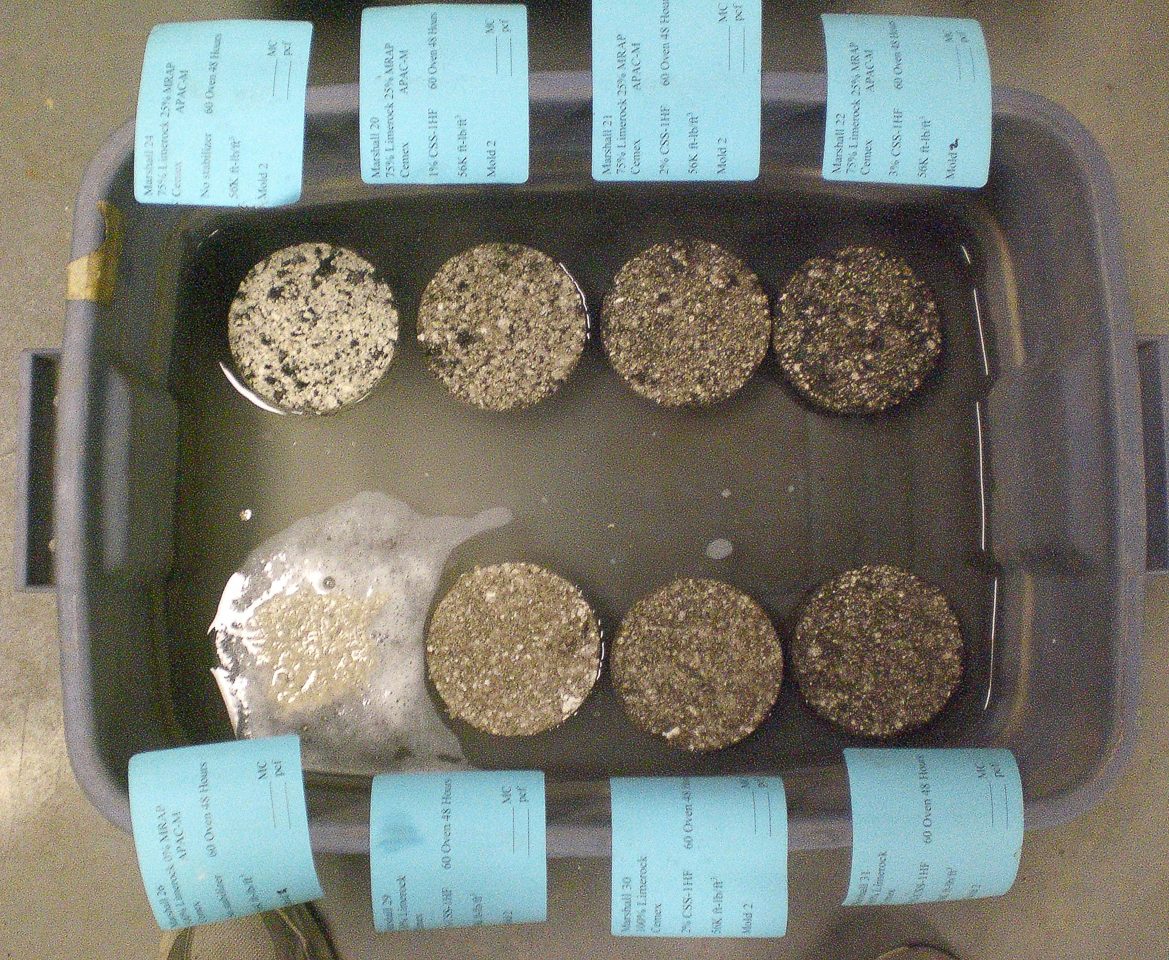Albert Bleakley’s Pavement Research Spurs $10 Million FDOT Test Road, With More to Follow
Research from civil engineering professor Albert Bleakley into ways to reuse asphalt byproduct from roads repairs will be put to the test, literally, in a $10 million project from the Florida Department of Transportation that could end up boosting the sustainability of this critical infrastructure and saving the state millions of dollars in future roadbuilding costs.
For more than a decade, Bleakley has conducted research, including some funded by the Florida Department of Transportation (FDOT), in the area of pavement materials recycling. The research is necessary because the process of repairing asphalt surfaces by milling off the top several inches generates piles of what is known as reclaimed asphalt pavement, or RAP.

Recycling or re-blending 100% of this material is not always possible, so excess RAP is stockpiled at asphalt plants. Paving companies have been trying to reuse RAP as roadway base materials for decades, but RAP’s asphalt aggregate mix causes the pavement to rut excessively if used directly.
Bleakley’s research may highlight a solution.
He has determined that blending the millings with specific base materials or adding several special chemicals in relatively small percentages can significantly reduce and eliminate pavement rutting while requiring smaller amounts of needed natural resources such as lime rock (crushed limestone).
His findings came after civil engineering professors Paul Cosentino and Edward Kalajian (now professor emeritus) had carried out previous research projects, Bleakley notes.
“After retiring from the Army, I was fortunate to join Florida Tech at a time when a fourth FDOT sponsored research project was just getting underway under Dr. Cosentino’s leadership,” Bleakley said. “Building on Dr. Cosentino’s and Dr. Kalajian’s three previous research projects, our team was able to identify several promising methods of greatly increasing the use of reclaimed asphalt pavement in future road projects.”
Now FDOT wants to see this theory in action. It plans to spend $10 million to construct a multi-section road test on State Road 301 north of Stark to evaluate millings blended with lime rock base. One section will have a 50-50 blend of RAP and lime rock, while a second section will have 25% RAP and 75% lime rock. There will also be sections of 100% lime rock and 100% RAP for comparisons to a known base.
The test road, which will include seven 1,000-foot test sections, will be evaluated continuously over 5 years. Then a second, $10 million test will be developed to evaluate RAP blended with cement and asphalt emulsions.
“If it works, this will allow RAP to be used in a way that doesn’t diminish pavement performance and utilizes stockpiles of RAP currently not being used, especially in South Florida,” said David Horhota, state materials geotechnical engineer for FDOT. “It will also extend the life of our diminishing natural resource used for our roadways, such as lime rock, which has become increasingly more difficult to permit and therefore mine, and it will extend the life of Florida’s existing sources.”
Bleakley said the impact could go beyond the Sunshine State.
“The U.S. construction industry produces approximately 45 million tons of RAP every year as a byproduct of road resurfacing projects, so there is a huge potential economic and environmental impact potential in using this material in place of freshly mined lime rock.”





